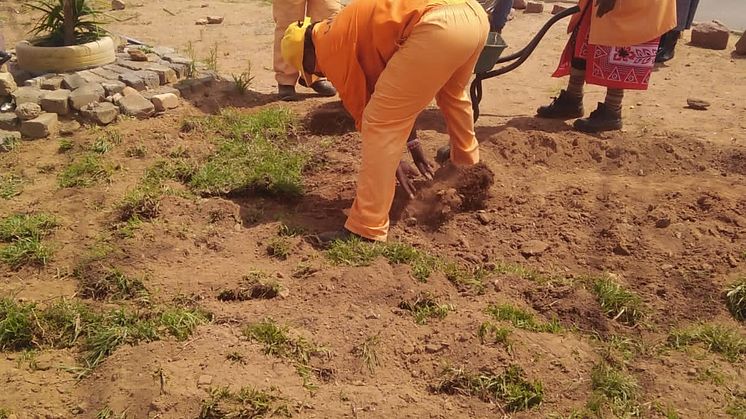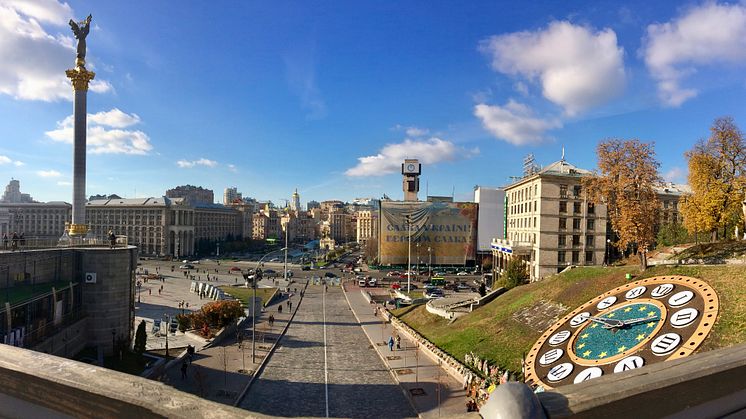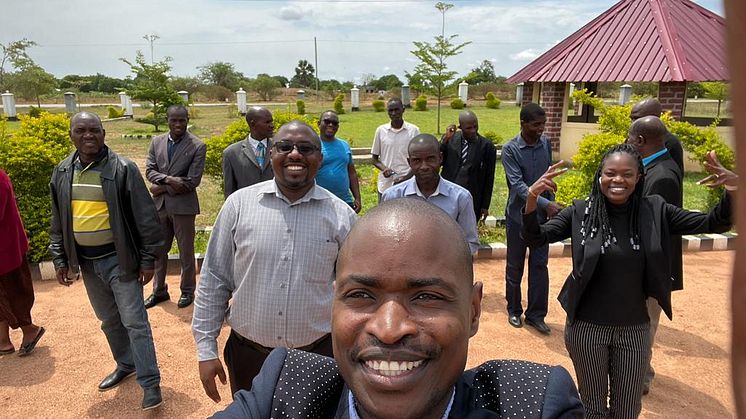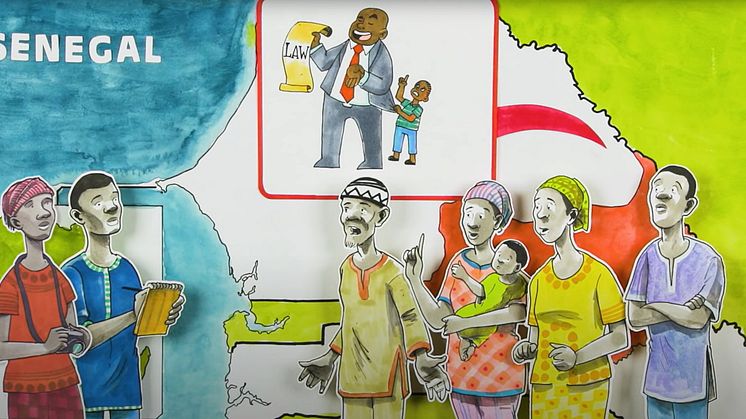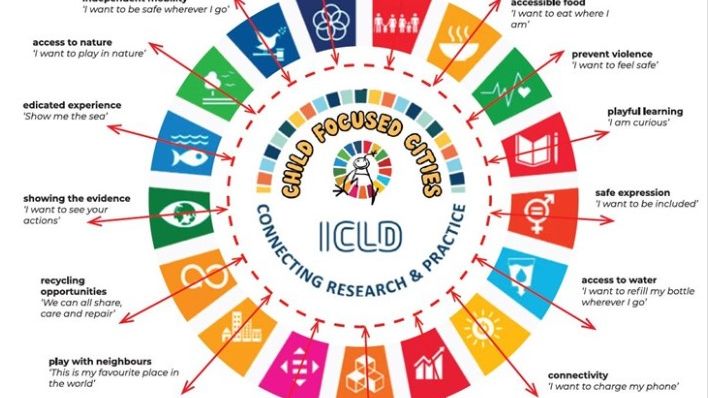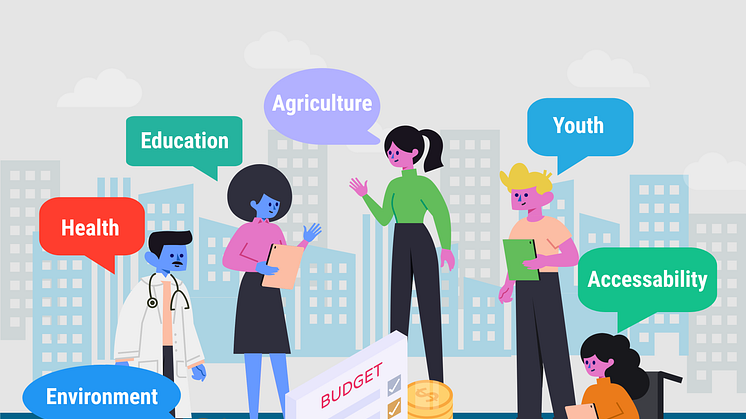
Blogginlägg -
Democratic principles in local budget processes: Introducing the Open Municipalities Index
Access to information about the budget process is a prerequisite to guarantee citizens' influence and decisions that affect their lives. Researchers from the Association for Research and Analysis (ZMAI) in North Macedonia explored the level of equality, inclusion, transparency and accountability in budget processes at the local level, to assess and advise local governments on how to improve the democratic procedure. Based on the researchers' new Open Municipalities Index, several municipalities have shown a clear improvement in transparency during the course of the project.
We asked the lead author VIktor Mitevski, director of ZMAI, what they learned about connecting research and practice. Tip: If you want to hear Viktor in action, join the workshop on how to create a Citizens Budget.

What was the most significant change?
The Open Municipality Index (OMI) is a tool designed to measure the level of transparency and openness of municipalities in North Macedonia. Its introduction had several significant changes, but one of the most important was the increase in transparency and accountability in the management of public resources.
Before the OMI, it was difficult for citizens to access information about how their local government was using public funds. The OMI required municipalities to disclose information about their budget, public procurement, and other important aspects of their management. This increased transparency allowed citizens to monitor the actions of their local government and hold them accountable for their actions.
Another significant change was the promotion of a culture of transparency and openness in local government. The OMI provided incentives for municipalities to improve their transparency scores, which encouraged them to adopt more open practices and prioritize transparency in their decision-making processes.
Overall, the introduction of the Open Municipality Index had a positive impact on the level of transparency and accountability in Macedonian municipalities, making it easier for citizens to monitor the actions of their local government and hold them accountable for their decisions.
How did the target community benefit from the project?
The introduction of the OMI had several benefits for both the citizens and the local governments. Here are some of the most important ways in which they benefited from the OMI:
- Increased access to information: The OMI required municipalities to disclose information about their budget, public procurement, and other important aspects of their management. This increased transparency allowed citizens to access information about how their local government was using public funds and to monitor the actions of their local government.
- Improved accountability: The OMI provided citizens with a tool to hold their local government accountable for their actions. By monitoring the transparency scores of their municipality, citizens could identify areas for improvement and advocate for more open practices in their local government.
- Better decision-making: The availability of more information and increased transparency allowed citizens to make more informed decisions about their local government. This empowered them to participate more actively in public life and to have a greater impact on the decisions that affect their community.
- Increased trust in government: The OMI helped to promote a culture of transparency and openness in local government. This increased the public's trust in government institutions and their ability to manage public resources effectively.

Can you tell us the story about a person that this project impacted?
The tools that resulted from our work with ICLD offer a new avenue for successful dialogue between local governments and citizens. Even smaller municipalities can use the OMI as a checklist to improve their transparency score, making their budgeting process more open and accessible to citizens. This can include involving citizens in the planning process before the budget goes before the council, which can lead to better consideration of their needs.
For example, a parent who is concerned about the priorities of the municipality in which their children grow up can advocate for more trees and green spaces in the community. This will improve the quality of the air and create a space for children to play and grow. The municipality can use this feedback to create projects that citizens can fight for, with the support of local NGOs and media. Proper budgeting and planning can then be done to offer citizens what they want.
One good example of this is the Valandovo Municipality, which created a new website that offered two-way communication with its citizens. Through this website, the municipality improved the openness of the budgeting process and became one of the most transparent municipalities in the country. It didn't just tick boxes, but created a digital tool through which citizens could send recommendations and ideas for the priorities they wanted to see in the budget for the following year.
The municipality gathered over 150 ideas, some of which led to key projects that were funded in the budget for 2023. For example, the municipality created forums to help local businesses connect and communicate better, which led to measures for supporting these businesses. Financial aid was also provided in the budget to help over 56 families in the local community get through the economic and energy crisis. The municipality created programs to support people with disabilities or families that have gone through misfortune, socially endangered families, and made the application procedures easier so that those in need can access the funding. It also established a Youth Council, a youth center, and other youth-centered programs to engage young people in the city and provide a place for them to thrive.
In summary, the Open Municipality Index has not only helped the municipal administration but also the local population. By promoting openness and transparency in the budgeting process, citizens can actively participate in their local government and make a positive impact on their community.
What was the biggest challenge in terms of connecting research and practice?
One of the biggest challenges when researching the importance of municipal budget openness is bridging the gap between research and practice. While researchers may highlight the benefits of transparency in the budgeting process, it can be difficult to convince both the citizens and the local governments that this process is worth exploring.
Municipalities usually have limited resources, lacked the necessary expertise or faced institutional resistance to changing their budgeting processes. Additionally, it is challenging to effectively communicate the benefits of transparency to citizens and engage them in the process.
Moreover, different municipalities face unique challenges, such as varying levels of development, resources, and capacity. Thus, it is challenging to create a one-size-fits-all approach that is applicable to all municipalities. Therefore, it is important for researchers to work closely with practitioners and local stakeholders to develop tailored strategies and solutions that can be effectively implemented at the local level. By working together, researchers and practitioners can ensure that their efforts to promote budget openness are grounded in reality and effectively address the specific challenges faced by each municipality.
How can we continue with this change?
The principles of open budget process are powerful tool for creating positive change, but its impact depends on regular measurement and global application. For example, by measuring the OMI annually, Municipalities can ensure they are continuously improving and making the budget process more open and inclusive for citizens. This is essential for local democracy and meeting the needs of the community.
However, two additional segments are critical to expanding this change: education and communication. It is important to educate both Municipal administrations and the public about the budget process, including how it is made, who it serves, how it can be read, and how it can be improved to better serve citizens. Additionally, media coverage and community support can help citizens understand their power to improve their municipalities and their lives. These components create a closed circle that ensures the sustainability of the process over the long run.
In order to better advocate for transparency there should be continued promotion of budget transparency and open government at all levels. This can involve engaging with government officials, civil society organizations, and other stakeholders to promote greater transparency and accountability in budgeting processes.
Story telling is one of the most effective ways of communicating positive changes. Hence, sharing success stories from our research in Macedonia can help raise awareness of the benefits of budget openness and encourage other municipalities to adopt similar practices in other countries.
As we’ve already said, there can be no full circle if there is no capable government institutions to support this process. Therefore, providing technical assistance and capacity building support to governments and civil society organizations in other countries can help build local capacity and promote greater budget openness.
Finally, we must not forget the use of digital tools throughout the process. Tools such as online budget portals and social media can help promote transparency and engagement with citizens. These tools can enable citizens to access budget information and provide feedback to governments.
From a research perspective, what surprised you the most?
From a research perspective, what surprised us the most was the difference in perception between the local government officials and the citizens on what constitutes an open budget process. While officials believed that ad-hoc meetings with citizens could be seen as openness, citizens demanded systematic solutions that did not depend on the will of one leader or leadership. This difference in perception was a major challenge in developing a methodology for measuring openness, as we had to take into account both perspectives to ensure a fair and comprehensive evaluation of the local budget process. Additionally, it was surprising to see how much impact a more open budget process can have on the local community, as it empowers citizens to have a say in how their tax money is spent and can lead to more inclusive and effective decision-making.
The research project entitled Through inclusion and transparency, to equity and quality: improvement of local budget processes in North Macedonia comprises the following outputs:



